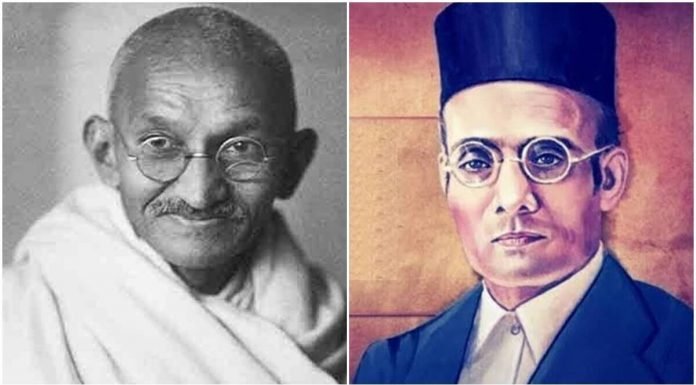
Ratan Tata, a name synonymous with trust, humility, and visionary leadership, has been one of the most influential figures in Indian industry. From inheriting the Tata Group’s leadership to transforming it into a global powerhouse, his journey is filled with perseverance, innovation, and compassion. This article will explore the incredible journey of Ratan Tata, highlighting his achievements, challenges, and enduring legacy.
Ratan Tata’s name evokes respect and admiration not only in India but globally. His journey from being an ordinary businessman to an extraordinary visionary is filled with lessons in resilience, innovation, and social responsibility. Under his leadership, the Tata Group expanded internationally, with notable acquisitions and pioneering projects. But his contributions go beyond business; he has played a pivotal role in transforming Indian society through his philanthropic endeavors.
Early Life and Education
Ratan Tata’s Family Background
Born on December 28, 1937, Ratan Naval Tata comes from the prominent Tata family, known for its industrial prowess in India. His great-grandfather, Jamsetji Tata, founded the Tata Group, which has since become a conglomerate with a significant global presence.
Educational Pursuits
Ratan Tata received his early education at the Campion School in Mumbai before moving to the U.S. He graduated from Cornell University with a degree in architecture and structural engineering. Later, he pursued an Advanced Management Program at Harvard Business School, which broadened his global business perspective.
Joining Tata Group
The Start of His Corporate Journey
Ratan Tata joined the Tata Group in 1962, starting with a position at Tata Steel. He worked on the shop floor, an experience that grounded him in the basics of manufacturing and labor management. This hands-on exposure shaped his management style, making him a leader who understood the importance of every role within an organization.
Early Challenges
Initially, Ratan Tata faced skepticism within the Tata Group. His new ideas and willingness to take risks were met with resistance by senior executives. However, his persistence and innovative mindset soon began to turn the tide.
Ratan Tata as Chairman
Taking the Helm
In 1991, Ratan Tata succeeded JRD Tata as the Chairman of the Tata Group. This transition was marked by both excitement and challenges. The conglomerate, though successful, was spread across numerous industries, many of which needed a major overhaul.
Revolutionizing Tata Motors
One of Ratan Tata’s earliest successes as chairman was his focus on Tata Motors. He led the development of the Tata Indica, the first indigenously designed Indian car. Although the car initially struggled, it eventually became a success, laying the foundation for Tata Motors’ future growth.
Acquiring Global Brands
Under Ratan Tata’s leadership, the Tata Group embarked on a series of high-profile international acquisitions, which placed the company on the global map.
Transforming Tata Group
Expansion into International Markets
Ratan Tata was determined to make the Tata Group a global brand. His strategic focus on acquiring international companies expanded the group’s reach, diversifying its portfolio.
Fostering Innovation
He fostered a culture of innovation, encouraging his teams to think creatively and challenge the status quo. His emphasis on research and development enabled Tata companies to become more competitive globally.
Key Acquisitions Under Ratan Tata
Jaguar and Land Rover
In 2008, Tata Motors made headlines by acquiring Jaguar and Land Rover (JLR) from Ford. This acquisition was a turning point for Tata Motors, bringing it into the luxury car market.
Corus Steel
In 2007, Tata Steel acquired Corus, a British steelmaker, in one of the largest foreign takeovers by an Indian company. This move catapulted Tata Steel into the ranks of the world’s top steel producers.
Challenges Faced by Ratan Tata
Economic Recessions
The global economic downturns in 2008 and 2011 posed significant challenges for the Tata Group. Despite these setbacks, Ratan Tata’s steady leadership ensured that the group emerged stronger, maintaining its focus on long-term growth.
Internal Resistance
His push for modernization and innovation often met resistance within the Tata Group. Many traditionalists were hesitant to embrace change, but Ratan Tata’s unwavering vision eventually won them over.
Ratan Tata’s Philosophy of Business
Focus on Ethics and Integrity
One of Ratan Tata’s defining traits is his unwavering commitment to ethical business practices. He believes that businesses should serve a larger purpose beyond profits.
Employee and Customer-Centric Approach
He always emphasized the importance of putting employees and customers at the center of the business. This philosophy contributed to the Tata Group’s reputation as a company that values integrity and trust.
Contributions to Indian Society
Philanthropy and Social Initiatives
Ratan Tata is not just a businessman; he is a philanthropist at heart. Through the Tata Trusts, he has contributed to education, healthcare, rural development, and more. His efforts have made a significant impact on improving the quality of life for millions of Indians.
Support for Entrepreneurship
Ratan Tata has also been a staunch supporter of young entrepreneurs in India. He has invested in numerous startups, offering mentorship and financial support to promising ventures.
The Launch of Tata Nano
Vision for Affordable Cars
Ratan Tata envisioned an affordable car that would make automobile ownership accessible to millions of Indians. This vision gave birth to the Tata Nano, the world’s cheapest car at the time.
Challenges and Criticism
Despite its noble vision, the Tata Nano faced numerous challenges, including criticism over its design and market positioning. Nonetheless, it remains an iconic symbol of Ratan Tata’s innovative thinking.
Ratan Tata’s Leadership Style
Visionary and Innovative Thinking
Ratan Tata is known for his ability to think ahead of his time. He has always been willing to take calculated risks, which has been crucial to the Tata Group’s success.
Mentorship and Empowering Leaders
Even after stepping down as Chairman, Ratan Tata continues to mentor the next generation of leaders within the Tata Group and beyond.
Retirement and Legacy
Stepping Down as Chairman
Ratan Tata retired as the Chairman of Tata Sons in 2012, leaving behind a legacy that few could match. However, he continues to be actively involved in the business world and social causes.
Continuing as a Mentor and Advisor
Even in retirement, Ratan Tata remains a guiding force for many. His wisdom and experience are sought by entrepreneurs, business leaders, and philanthropists alike.
Ratan Tata’s Personal Life
Humility and Compassion
Despite his immense success, Ratan Tata is known for his humility and down-to-earth nature. He is deeply compassionate, often quietly contributing to causes without seeking recognition.
Private Life and Interests
Ratan Tata is an avid animal lover and enjoys spending time with his dogs. He also has a keen interest in design and architecture, reflecting his academic background.
Awards and Recognitions
National and International Honors
Ratan Tata has received numerous awards, including the Padma Vibhushan, India’s second-highest civilian honor. His contributions to global business and philanthropy have earned him respect worldwide.
Conclusion
Ratan Tata’s journey is a testament to the power of vision, resilience, and compassion. His leadership has not only transformed the Tata Group into a global powerhouse but has also contributed immensely to society. He continues to inspire generations of entrepreneurs, business leaders, and philanthropists with his principles and values.
FAQs
- What is Ratan Tata’s biggest achievement?
Ratan Tata’s biggest achievement is transforming the Tata Group into a global entity, notably through the acquisition of brands like Jaguar and Land Rover. - Why is Ratan Tata respected globally?
Ratan Tata is respected for his ethical business practices, philanthropy, and visionary leadership that has had a profound impact on both industry and society. - What was Ratan Tata’s vision for Tata Motors?
Ratan Tata aimed to make Tata Motors a global brand with innovative and affordable cars, such as the Tata Nano. - How has Ratan Tata contributed to Indian society?
Through Tata Trusts, Ratan Tata has supported initiatives in education, healthcare, and rural development, benefiting millions. - What leadership style does Ratan Tata follow?
Ratan Tata follows a visionary leadership style, focusing on innovation, ethics, and empowering his team to think creatively.





































